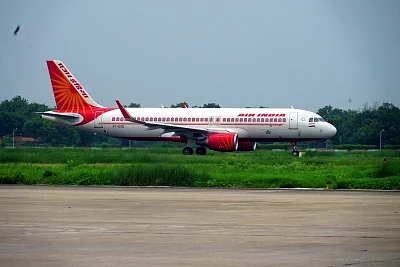By Nirbhay Kumar
New Delhi, June 5 (IANS) Amid enquiry into alleged role of a middleman in higher bilateral seat quota with Gulf countries during UPA era, it has now emerged that national carrier Air India had repeatedly warned against such move.
Letters written by the airline to Civil Aviation Ministry had claimed that the capacity entitlements on almost all the key international routes were benefitting foreign carriers requiring the Indian government to trade cautiously.
In a letter faxed to the Ministry in April, 2010 the state-run carrier had argued that the capacity deployed by foreign airlines was in far excess of the market requirements. It had noted that excess capacity was causing deleterious effect on Air India and needed to be addressed.
"Any further enhancement of capacity entitlements particularly under the bilaterals with the SE (South East) Asian and Gulf/Middle East carriers will enable the carriers from these countries to further increase their capacity deployment, aggravate the already existing capacity situation and divert even more traffic/revenue from the Indian carriers," the letter from T.K. Palit, Executive Director (Planning and International relations) to the aviation ministry stated.
The letter has been reviewed by IANS.
The airline stated that major foreign carriers operating to and from India were much stronger than Air India and other local airlines. Further, they had large and modern fleets, bigger network and well-developed hub airports in their home bases.
In addition to this, the foreign airlines were cash rich and could sustain yield and seat factor declines over long periods of time because of the financial and other support they received from their governments.
"Air India and the private Indian carriers, on the other hand, are currently in a weakened financial condition and are still in the process of expanding/modernising their fleets and developing their networks," Air India vehemently argued.
The airline further noted that capacity entitlements under various bilaterals during the period of about six years -- from January, 2004 till April, 2010 had increased from 22.8 to 83.56 million one-way seats per annum. This represented an increase of 266.5 per cent or an average annual growth (AAG) rate of about 24.2 per cent.
It added that the actual increase in capacity entitlements available to the foreign carriers had been much higher than the increase of 266.5 per cent. This was because some of the bilaterals allowed foreign carriers to deploy unlimited capacities to and from India and operate flights into deep inside the country.
"Since the entitlements made available in various markets are quite in excess of the market requirements, the foreign carriers have poached into other markets by carrying significant amount of 6th freedom traffic over their home bases," the airline had observed.
The 6th freedom of air allows foreign airlines to fly from a foreign country to another while stopping in one's own country. This is used to take passenger from a country to feed long-haul flights. Airlines like Emirates and Qatar Airways take passengers from India to feed their long-haul flights to Europe and the US.
Aviation experts have, however, rejects the arguments that government should have gone slow on expanding bilateral traffic rights with foreign countries in order to protect Air India.
"The government has to see that the sector grows and the millions of flying passengers are benefitted in terms of more connection and lowest possible airfares instead of few airlines gaining from a public policy," a top industry expert said wishing not to be named as the matter is under investigation.
The airfares have indeed drastically come down on almost all the routes following the liberalisation of aviation sector and many more cities in the world are now directly connected with India.
As per the latest official data, as many as 91 international carriers which include six Indian and 85 foreign carriers connect the country with 56 countries through 343 routes.
Merits of the policy apart, the NDA government has been extra cautious in negotiating bilateral seat entitlements with countries in the Gulf and Middle East. It has been putting on hold the suggestions from Qatar and UAE to enhance bilateral seat quota.
(Nirbhay Kumar can be contacted at nirbhay.k@ians.in)
--IANS
nk/in
(This story was auto-published from a syndicated feed. No part of the story has been edited by The Quint.)
